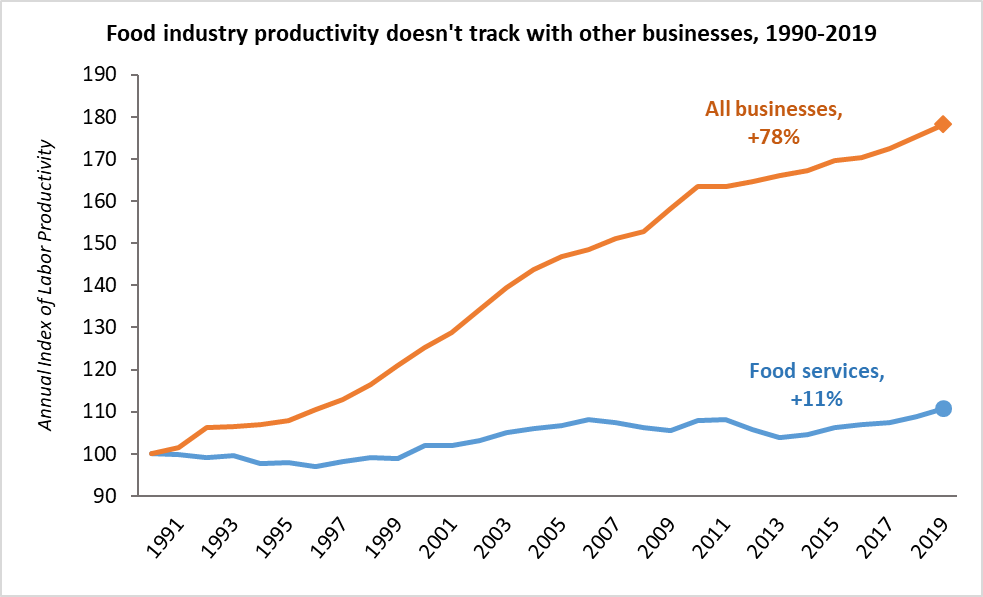Advocates maintain various rationales for raising the minimum wage to extraordinarily high levels – yet none are rooted in historical or economic precedent.
One such argument seems to be that the federal minimum wage should correlate with gains in labor productivity. This idea is so pervasive that various members of Congress have adopted it as a main talking point – Sen. Elizabeth Warren suggested in 2013 that the minimum wage should be raised to $22 per hour in line with productivity gains. More recently, Rep. Alexandria Ocasio-Cortez reasoned that because the minimum wage should be upwards of $22, passing a $15 federal wage mandate is just a “deep compromise”.
Yet, this logic doesn’t actually reflect historical reality. A majority of minimum wage-earners work in food services, yet productivity in the industry has had minimal growth compared to other industries who hire few, if any, minimum wage employees. While labor productivity for all businesses has grown by nearly 80 percent since 1990, the food service industry has only risen by 11 percent.

Sen. Warren’s minimum wage projection is misleading, because it likely comes from a calculation of productivity gains for businesses as a whole, which likely reflect huge gains for fast-growing tech industries like software publishing (more than 800 percent in productivity gains over this period) or telecommunications (over 585 percent gains). These industries fall in the “Information” sector, which employed less than 1 percent of all minimum wage earners.
But tracking gains in the food services industry, which hires the majority of minimum wage workers, tells a different story. Since 2009, when the federal minimum wage was last raised to $7.25 per hour, food services’ labor productivity has risen less than 5%. To track the federal minimum wage according to these gains would result in roughly $7.61 per hour today. This data hardly supports more than doubling the federal minimum wage to $15 per the Raise the Wage Act, or more-than-tripling it according to Sen. Warren’s faulty calculation.
If lawmakers followed this misguided recommendation, employers would be forced to make tough decisions to balance dramatically rising labor costs with limited productivity growth. The result — well-documented evidence suggests raising the minimum wage to $15 and beyond would cost millions of jobs and work hours for minimum wage employees.
